You are using an out of date browser. It may not display this or other websites correctly.
You should upgrade or use an alternative browser.
You should upgrade or use an alternative browser.
Former President Donald Trump's United States of America
- Thread starter W. K. Lis
- Start date
Northern Light
Superstar
Its a well-spoken, professional, relatable and admirable message.
My one thing, not against that message in particular.............is the number of times we've heard a message that lacks clear actions.
That's not on this one speaker, as it isn't on any one speaker, Black or otherwise.
But if we can all agree the world needs to a fairer, less discriminatory place; and that hearts and minds are slow to change. That many symptoms of callous hearts and ignorant minds adversely affect so many.
We must also agree on how to ameliorate those symptoms, as best we can, as soon as we can.
We've begun the discussion here around police excessive force/discrimination, which one glaring facet of this.
Economic opportunity though access to equal, high-quality health and education is another.
But we must also find ways to reduce employment discrimination, amongst other things.
These things won't change, at least not with any speed if we don't identify what needs to change.
I'll try to do my part, I've certainly shared many of my thoughts on the first two.
That last one strikes me as much more challenging.
***
I'll start by offering, perhaps its time, to go to "Blind" resumes/applications.
No picture, no name.
So at the very least, everyone has an equal shot at a job interview.
Making interviews blind is also possible, though perhaps a bit more of a challenge depending on the job.
I was struck some years back by the decision of several orchestras to go to 'blind' auditions, in which someone performed a piece of music behind a screen and you could see neither their sex, nor their colour.
Apparently this change resulted in more women and minorities in most orchestras, when they were judged solely on their music.
One has to imagine that was a shock to many, one that in some cases betrayed overt racism or sexism, but in many others surely betrayed unconscious bias of which those appraising a candidate were entirely unaware.
W. K. Lis
Superstar
AlbertC
Superstar
Denver police fire pepper balls at man yelling that his pregnant fiancée is in car
June 5, 2020
The Denver Police Department is investigating an incident from last week that was caught on video and has gone viral showing officers spraying pepper balls at a man who is screaming that he has a pregnant woman in his car.
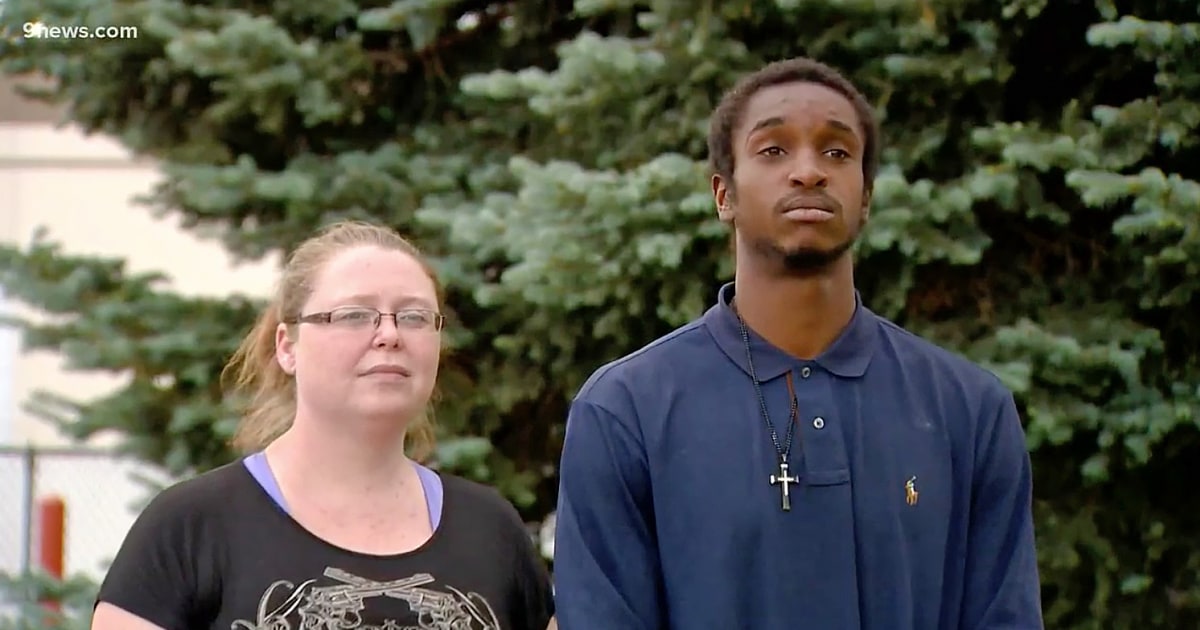
 www.nbcnews.com
www.nbcnews.com
June 5, 2020
The Denver Police Department is investigating an incident from last week that was caught on video and has gone viral showing officers spraying pepper balls at a man who is screaming that he has a pregnant woman in his car.

Denver police fire pepper balls at man yelling that his pregnant fiancée is in car
“Honestly I thought I was going to die. I thought I was going to be the next black man shot by police,” the man said.
Northern Light
Superstar
Two Buffalo police involved in injuring the senior citizen have been arrested and charged with assault!
Yay for accountability, part 1; now what about those other 57 louts that failed to render aid as he lie bleeding and unconscious on the ground?
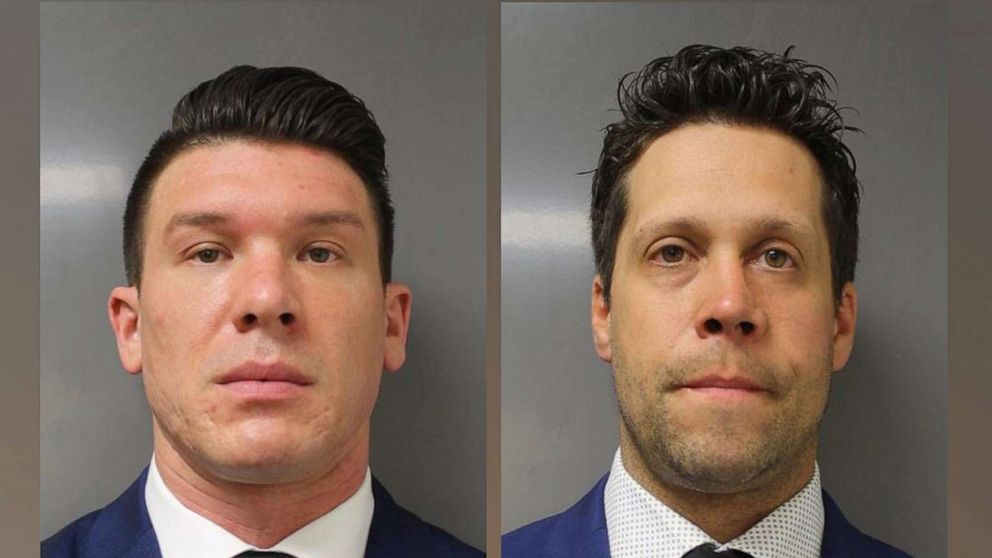
 abcnews.go.com
abcnews.go.com
Yay for accountability, part 1; now what about those other 57 louts that failed to render aid as he lie bleeding and unconscious on the ground?

Buffalo police officers arrested after shoving 75-year-old protester
A spokesman for the police department initially reported that the man "tripped and fell" until video of the push was released.
Jasmine18
Senior Member
The more disturbing part was not the assault...
It's that no officer offered aid.
It's that no officer offered aid.
Northern Light
Superstar
"When Anna said she was raped by two on-duty cops, .......??? ??? ?? ???? ??? ????? ?? ??? ?? 35 ?????? ????? ???????? ??? ????? ? ???????? ?????????."
Excuse me?
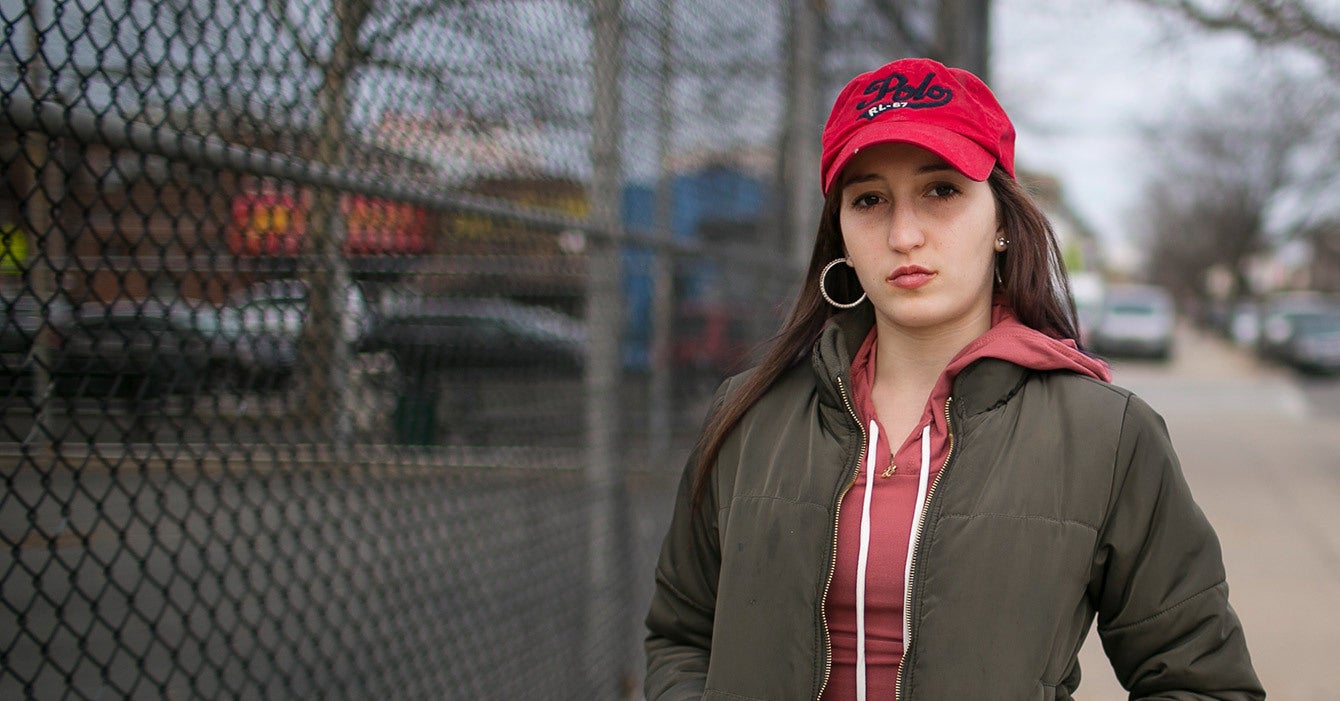
 www.buzzfeednews.com
www.buzzfeednews.com
I'm not sure what the law on this is in Canada, I certainly hope we don't permit/excuse this.........(research pending)
Excuse me?

An 18-Year-Old Said She Was Raped While In Police Custody. The Officers Say She Consented.
When Anna said she was raped by two on-duty cops, she thought it would be a simple case. She had no idea she lived in one of 35 states where officers can claim a detainee consented.
I'm not sure what the law on this is in Canada, I certainly hope we don't permit/excuse this.........(research pending)
TheKingEast
Senior Member
I'm glad law enforcement is getting exposed. A lot of people who lived in a bubble really need to see this. BLM has been demonized since its inception even by people on this board. Good on the youth for saying enough is enough. The oldies have failed them.
Irishmonk
Senior Member
They were equally disturbing to my eyes. In addition, the police lied in their report saying the man "tripped and fell". There is something rotten at the core of policing in the US.The more disturbing part was not the assault...
It's that no officer offered aid.
Chris Hayes sums it up nicely in this clip:
TheKingEast
Senior Member
They were equally disturbing to my eyes. In addition, the police lied in their report saying the man "tripped and fell". There is something rotten at the core of policing in the US.
Chris Hayes sums it up nicely in this clip:
It's not just the US, but it's due to power and the blue network. So many feel they are above the law and they are insulated. I look at US cops and I think of the cops in 3rd wold countries where corruption is rampant. The US is getting a huge wakeup call. All the policing they do of other countries.....they are no different. Trump just accelerated the exposure.
W. K. Lis
Superstar
AlbertC
Superstar
Atlanta mayor says she is disgusted by Trump's invocation of George Floyd
Sun June 7, 2020
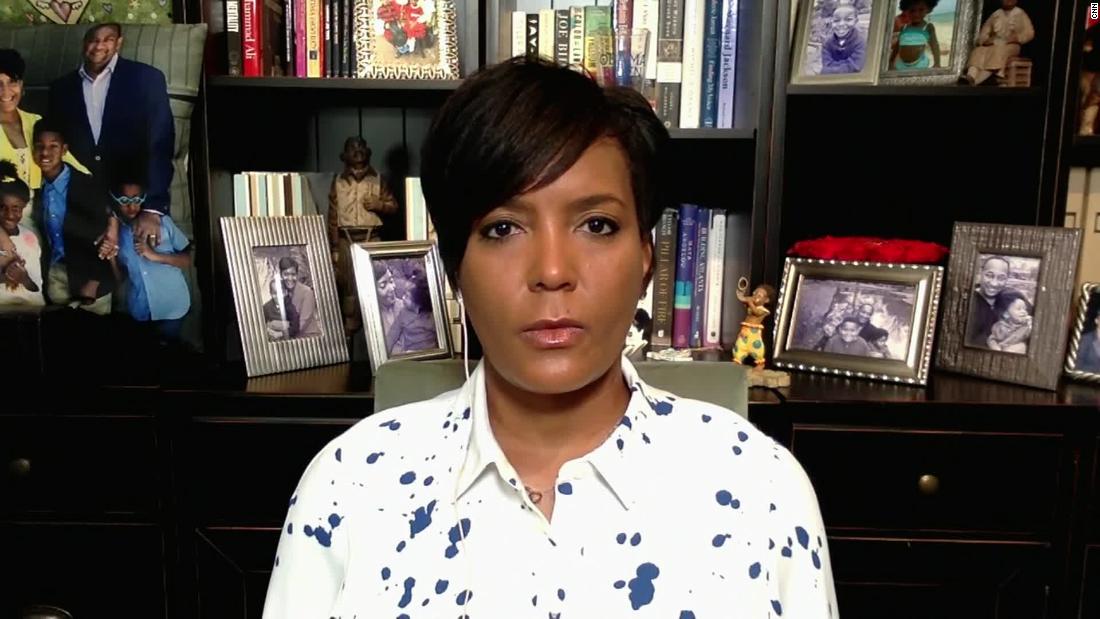
 www.cnn.com
www.cnn.com
Sun June 7, 2020

Atlanta mayor says she is disgusted by Trump's invocation of George Floyd
Atlanta Mayor Keisha Lance Bottoms said she was "simply disgusted" by President Donald Trump's invoking George Floyd's name during a Friday bill signing ceremony touting the latest jobs report, which exceeded economists' expectations.
W. K. Lis
Superstar
Frontline Workers Are Going Without Pay as Hospital CEOs Keep Their Seven-Figure Salaries
From link.
From link.
In one of the largest ironies of the coronavirus pandemic, thousands of health-care workers across the country have had their wages cut and hours slashed as profitable elective procedures are put on hold. Hospital CEOs have called these measures “painful” and “difficult,” though necessary to make up for millions of dollars in lost revenue. But some executives don’t seem willing to share in the suffering.
Last month, executives at Denver Health received bonuses of up to $230,000, just days after asking their hospital workers to reduce their hours or take time off. At the University of Kentucky—which boasts some of the highest paid administrators in the country—the college president has refused to take a pay cut, despite furloughing 1,500 medical workers. And executives at McLaren Health Care in Michigan have agreed to cut their salaries by just 2 percent—an amount employees facing furloughs called “a slap in the face.”
“These people are making millions of dollars and they're going to give 2 percent back?” said Jeff Morawski, a registered nurse at McLaren Macomb. “I think it’s a joke. I think it’s a slap in the face... They’re not walking into the hospital every day as a frontline worker.”
Hospital CEO salaries have been ballooning for years. According to a study published in Clinical Orthopaedics and Related Research, the average hospital CEO’s salary increased 93 percent in the decade between 2005 and 2015. In the same time frame, the average health-care worker’s salary increased just 8 percent. The average hospital CEO made $3.1 million dollars a year in 2015, according to the study. The average nurse, meanwhile, made $75,510.
At the University of Kentucky, which oversees the UK HealthCare system, President Eli Capilouto is the fourth highest-paid college president in the country. Capilouto made more than $1.5 million from base salary and other benefits in 2018, according to the Chronicle of Higher Education. Executive Vice President of Health Affairs Mark Newman was just behind him, with more than $1.4 million in yearly earnings. (The president of the nearby University of Louisville, for comparison, makes $875,000 a year.)
Amid the coronavirus crisis, the University of Kentucky is projecting a $70 million budget shortfall. And that doesn’t include lost revenue at UK hospitals and clinics, where outpatient visits are down 45 percent and inpatient visits are down 34 percent. Between the reduced patient volumes, additional spending on testing and protective gear, and estimated investment losses, UK HealthCare is projecting $160 million in losses due to COVID-19.
Hospitals around the country have seen a decline in revenue due to restrictions on elective procedures, which can generate up to 80 or 90 percent of some hospitals’ income. (Even in the epicenter of the pandemic, academic hospital systems in New York City have reported up to $450 million in losses.) Because of this, executives at some hospitals have agreed to reduce their salaries—or even forgo them completely—while the crisis persists.
But administrators at the University of Kentucky have agreed to no such cuts. Instead, Capilouto announced furloughs of 1,500 health-care workers and another 200 university staff last week. Some employees are being furloughed for as little as a week, while others will not be paid for more than two months. The university is also temporarily suspending new hires, freezing merit raises, and cutting retirement contributions in half for the rest of the year.
“They’re asking for sacrifices from people least able to make them,” said Megan Parker, a Ph.D. candidate at UK, in a press release circulated by a group of frustrated university students, workers and community members. “Basically, we are supposed to accept that sacrifices have to be made, but they are expecting these sacrifices from people unable to make significant contributions.”
Zeke Perkins, a graduate instructor at the university, told The Daily Beast that more than 100 people had signed onto a letter calling for an end to the furloughs.
“We’ve been calling on the administration to provide for those who make the least and take cuts themselves,” Perkins said. “They could cut their salaries significantly and save hundreds of jobs.”
Of Capilouto, he added, “You could easily cut [his] salary in half, cut it down to $100,000 and he’s still fine. He can still go put his food in a refrigerator, and the rest of us are basically scrounging for enough to get by.”
In a statement, university spokesperson Jay Blanton said budget officials conducted “a lot of analysis of different scenarios” before landing on the furloughs and benefit reductions for workers.
“If you cut pay, it’s essentially a double hit to people,” he said. “You are impacting pay and benefits. We took the step of reducing benefits first. We hope this series of steps we are taking gets us where we need to be, even as we know additional steps might be necessary in what remains a very fluid and tough environment.”
Organizers in Michigan are also fighting back against top executives at McLaren Health Care, who have furloughed workers in several of their 14 hospitals across the state. Anger about the furloughs only increased last week, when a local ABC affiliate revealed that executives were reducing their own salaries by just 2 percent—the equivalent of one week’s lost work. (According to tax filings, CEO Philip A. Incarnati alone made $6.8 million in 2018.)
Christie Serniak, a nurse at McLaren Central, told The Daily Beast that “adequate reductions” in executives’ salaries could not only mitigate the furloughs, but help pay for protective gear for frontline workers. Union leaders are calling on the health-care system to cap executives’ pay at $1 million for the year—a move they say would save $8 million to reinvest in frontline staff.
...
Northern Light
Superstar
Its an announcement in that members released a statement, the motion has not yet been made/passed.
However, 9 members of that Council have publicly signed on, which is a veto-proof majority (overrides the Mayor).
Good luck to them! (seriously)
Last edited:
AlbertC
Superstar
A Virginia police officer faces charges after using a stun gun on a black man who cried, 'I can't breathe'
Sun June 7, 2020
A police officer in Fairfax County, Virginia, faces up to three years in prison in connection with his arrest and use of a stun gun on a black man who cried out, "I can't breathe."
Fairfax County police released bodycam footage of the incident, which appears to show Officer Tyler Timberlake using a stun gun on the man without provocation.
In a news conference Saturday night, Chief of Police Col. Edwin C. Roessler Jr. said the footage -- dated Friday, June 5 -- showed the officer violating the department's use-of-force policies and committing "criminal acts" that "violate our oath of office" and "ignore the sanctity of human life."
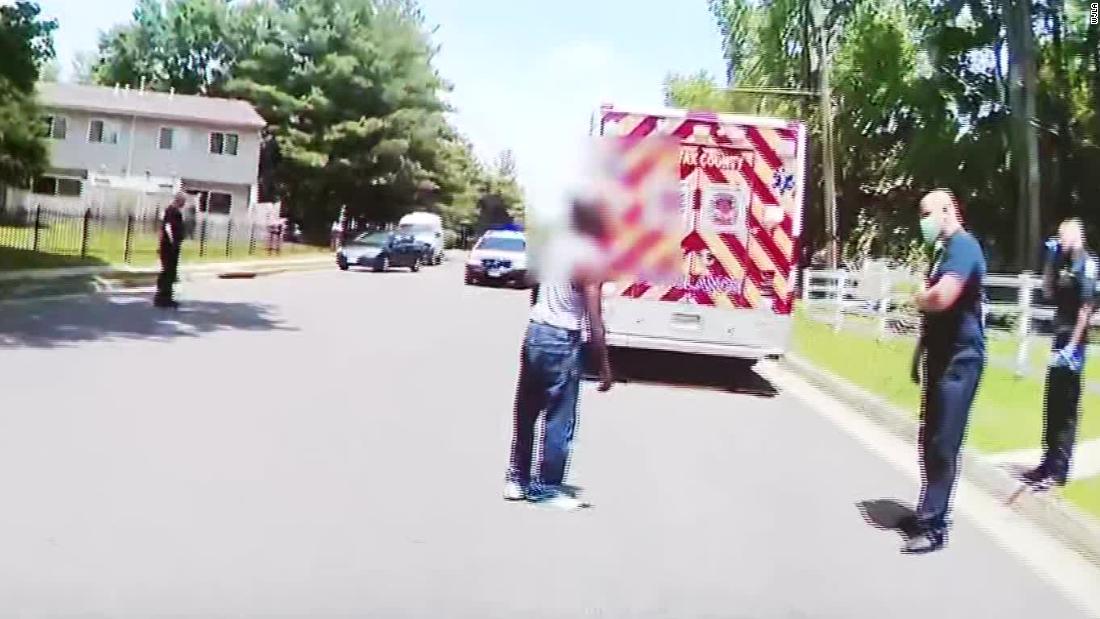
 www.cnn.com
www.cnn.com
Sun June 7, 2020
A police officer in Fairfax County, Virginia, faces up to three years in prison in connection with his arrest and use of a stun gun on a black man who cried out, "I can't breathe."
Fairfax County police released bodycam footage of the incident, which appears to show Officer Tyler Timberlake using a stun gun on the man without provocation.
In a news conference Saturday night, Chief of Police Col. Edwin C. Roessler Jr. said the footage -- dated Friday, June 5 -- showed the officer violating the department's use-of-force policies and committing "criminal acts" that "violate our oath of office" and "ignore the sanctity of human life."

A Virginia police officer faces charges after using a stun gun on a black man who cried, 'I can't breathe'
A police officer in Fairfax County, Virginia, faces up to three years in prison in connection with his arrest and use of a stun gun on a black man who cried out, "I can't breathe."





